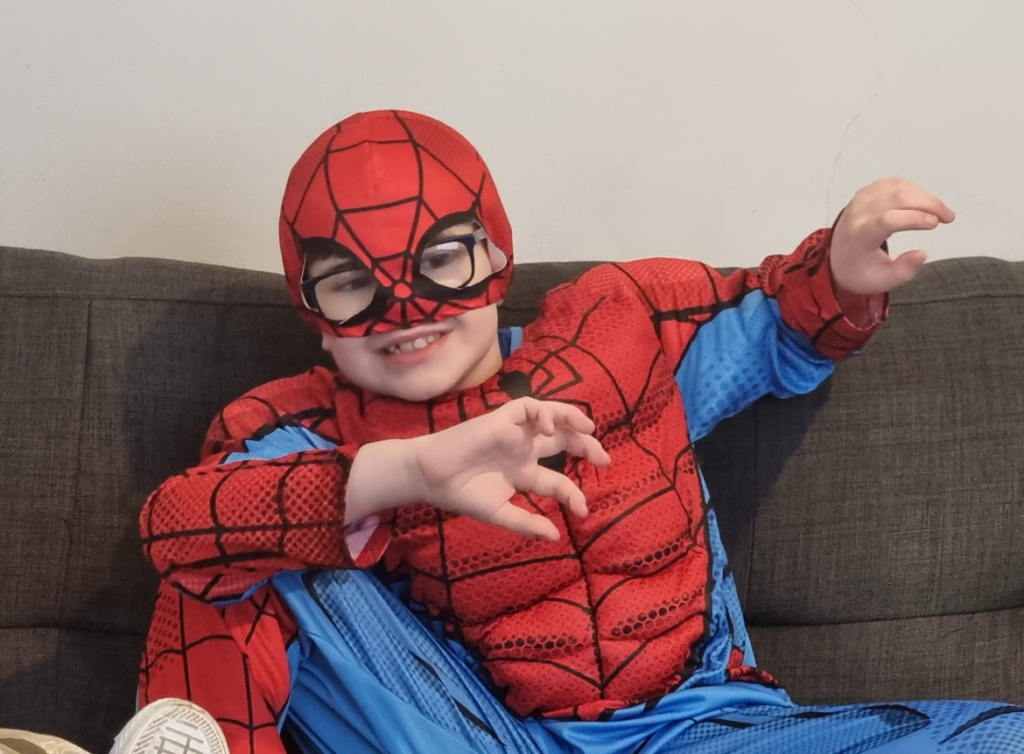Nine years ago, Rebecca Merritt embarked on what she thought would be the happiest day of her life, the birth of her first child.
Yet what transpired in the following 24 hours was traumatic rather than joyful, and it would only be three months later that doctors would be able to tell her the reason why, leaving her “completely shocked and silent.”
Her son, Jacob, suffered a perinatal stroke in the womb during birth. Rebecca, 17 at the time, wouldn’t find this out until much, much later. Now 26, looking back on the traumatic event, she said: “I honestly had no idea a baby could have a stroke.”
Perinatal strokes affect 1 in 2,300 live births, and a stroke was certainly the last thing she, and the doctors, thought was wrong with her newborn child.
Rebecca had a difficult birth resulting in a caesarean section, and Jacob began to have seizures as he was being born. The doctor’s instantly attached a main line of antibiotics to his heart and ran a plethora of blood tests. The possibility of a stroke was never put on the table.
The mother-of-two, from County Durham, said: “We went to see the paediatrician and what he said left me completely shocked and silent.
“There was never a conversation that it might be a stroke. When the diagnosis came, it was a massive shock.”
Jacob’s mother candidly admitted she wasn’t even aware a baby could have a stroke, admitting she thought “it won’t be that” when the doctors eventually suggested a brain scan almost a year after Jacob was born, which revealed the truth.

Now nine-years-old, he has received muscular-skeletal and speech therapy throughout his life. The decision is now being made whether he will enter a regular secondary school or one which will provide him with more support.
Most survivors of perinatal strokes go on to have permanent disabilities, such as cognitive development difficulties or epilepsy.
Throughout the whole process, Rebecca has been left confused. She feels as though healthcare providers aren’t equipped with the right information around perinatal strokes.
She said: “Although you get some guidance you don’t get all of the guidance you need, and I feel like that’s down to the fact that not all healthcare providers are readily equipped with the knowledge of neonatal strokes.
“This is something I’ve come across in conversations in both a healthcare setting and during my day-to-day life as people just don’t know that this is something that can happen.”
Despite a lifetime of troubles for her son, Rebecca is left constantly frustrated with people’s lack of awareness around his hidden disabilities, with them often saying “he doesn’t look like he’s had a stroke.”
She said: “He’s a typical little boy, he loves being messy and gaming, but he also has a lot of difficult days.
“He struggles with mood swings, especially if he has had difficulty sleeping, which we have been told is as a result of his stroke.”
Rebecca also said that although Jacob is a loving boy, he has difficulty interacting with people outside his family, adding: “The stroke has definitely affected him in terms of making friendships.”
His mother wants to see that stigma eradicated, and for more awareness to be created around perinatal strokes.
She said: “If the information was relayed to me from the start of my pregnancy, I would’ve made a lot of different choices. If I knew the chance of brain injury, not just strokes, was so high in a difficult birth, I would’ve opted for a C-section from the start.”
Around 303 babies will suffer a perinatal stroke during their birth this year, completely changing the course of their lives. Their mothers, preparing for one of the happiest occasions of their lives, are living in the dark about the issue that will soon take over their lives.
Awareness around perinatal strokes needs to improve so that mothers up and down the country can have the knowledge Rebecca was never given.




